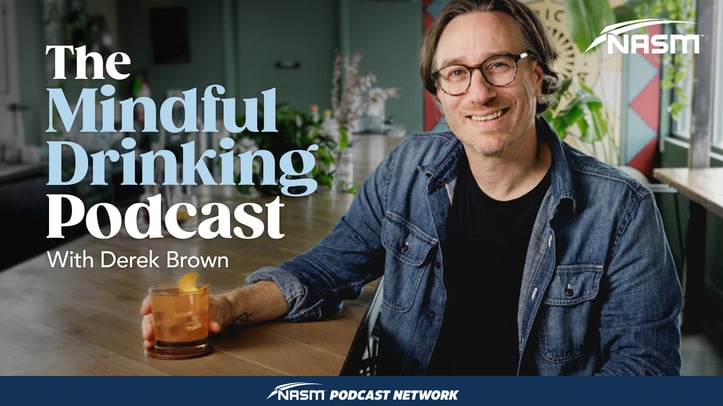Heart disease and diabetes are among the leading causes of death and decreased quality of life, and they account for most healthcare-related costs around the world. As such, it is reasonable to say that such diseases are arguably the largest health problems facing the world today. Facing these facts, it is sobering to know most of these diseases are preventable.
Central to the prevention of these diseases is, of all things, nutrition. In fact, it has been estimated that ~60-80% of the risk of these diseases is attributable to lifestyle factors such as nutrition and exercise.
Given the incredible impact nutrition has on overall health and wellness, the key to the reduction in these leading causes of death is education, tools, and platforms that empower people to make informed choices about their health. One of the leaders in this space is the nonprofit Global Wellness Institute™ ("GWI"). Given the shared passion for transforming lives through education, NASM is honored to be the exclusive Country Partner this year for the GWI Geography of Wellness US microsite and research report. Building on that partnership, NASM and GWI have developed a four-part blog series illustrating the latest data in the global wellness space. This is the first of the series and focuses on the intersection of food, fitness and wellness.
What is the Global Wellness Institute?
The Global Wellness Institute (GWI) is a nonprofit organization that focuses on improving and empowering wellness around the world through education about preventative health and wellness. The GWI works with both the public and private sectors to carry out their mission.
The most recent GWI Global Wellness Economy Report provided some key insights, especially as it relates to nutrition and wellness. Specifically, the Wellness Economy represented a nearly $4.4 trillion per year industry in 2020. Furthermore, in the US Geography of Wellness report, the GWI reported that North America spent the most money per capita on wellness, approximately $3,650 per year.
Of that, most of the spending went toward healthy eating, nutrition, and weight loss as well as personal care & beauty and physical activity. Those three sectors combined to account for roughly $700 billion in spending in the United States alone.
Among the healthy eating, nutrition, and weight loss categories, several key themes highlighted where consumers focus their spending. The three primary categories noted were:
• Health food products and supplements
• Weight loss products and supplements
• Weight loss services and programs (e.g., online, or in-person weight loss programs, dietitians, and nutritionists)
The findings of the GWI US Geography of Wellness Report highlighted that the United States demonstrates a leading interest in wellness, centered specifically around nutrition, weight loss, and physical activity.
The Role That Nutrition Plays in Wellness
To best understand the role that nutrition plays in wellness, it is helpful to start by referring to the definition of wellness. The GWI defines wellness as the active pursuit of activities, choices and lifestyles that lead to a state of holistic health. In this context, nutrition plays several key roles in wellness, especially as it relates to the following:
● Disease prevention
● Health promotion
● Quality of life
Nutrition plays a very large role in disease prevention, especially as it relates to non-communicable and preventable diseases. In fact, nutrition can reduce the risk of most of the leading causes of death in the United States.
For example, higher-quality diets can reduce the risk of heart disease, stroke, diabetes, and liver diseases. Examples of higher-quality diets include higher intakes of fruits and vegetables, low-to-moderate saturated fat intake, and minimizing processed sugars and oils.
On the opposite end of the spectrum of disease prevention is health promotion. Instead of just avoiding the negative consequences of a bad diet, nutrition can actively play a role in promoting health. Higher-quality diets can promote strong immune systems, robust metabolic function, increased exercise capacity, and more resilient mental health.
There are aspects of nutrition that affect the quality of life, especially as it relates to aging. For example, age-related sarcopenia (loss of muscle mass) is often attributed to the decline in physical capacity and quality of life as people age, something that can be offset by consuming adequate high-quality protein sources. Nutrition clearly affects physical and mental health, and as a result, directly impacts wellness.
As such, NASM has included nutrition as one of the five pillars of the NASM Certified Wellness Coach course, which promotes expert analyses on how wellness is not only defined but how it is connected to all parts of our lives.
Want more information on how you can become a Certified Wellness Coach? Click here to see what NASM can offer you as a future leader in a thriving industry.
Why Good Nutrition is Important for Health?
The human body relies on the energy and nutrients from the food we consume to keep our bodies functioning properly. Every day our bodies utilize the calories from the food we consume to fuel our basic body functions such as breathing, thinking, walking, and heart beating. The nutrients present in our food are utilized to rebuild our cells, and our tissues (e.g., bones, muscles, and internal organs), and the vitamins and minerals in our food are utilized in all the chemical reactions in our body.
Nutrition is critical to our body’s functioning properly. So much so that deficiencies in even just one nutrient like iodine or iron or even copper can result in major medical complications.
Foods and Vitamins Key for Mental Wellness
The role that nutrition plays in mental wellness has received more attention over the last several decades and much has been discovered about the direct link between nutritional status and mental wellness. These last several decades of research have taught us several important lessons about how we can use nutrition to improve our mental wellness.
The first major concept surrounding nutrition and mental wellness is regarding energy balance. It turns out that having either too many calories for extended periods or too few calories for extended periods can have negative effects on mental health.
The second major concept is that there are key nutrients that are known to affect mental health. For example, many trials have shown that maintaining adequate levels of most of the B-complex vitamins and consuming adequate amounts of omega-3 fatty acids is important for maintaining mental health. In some cases, consuming these nutrients have been shown to improve mental health among people who are experiencing poor mental health.
However, proper nutrition alone is often necessary, but not sufficient to achieve mental wellness. It should be utilized in conjunction with a holistic lifestyle approach to improving and maintaining mental wellness.
Summary
Proper nutrition has been shown to reduce the risk of many of the leading causes of death and preventable diseases around the globe. As such, it is accurate to state that nutrition plays a central and critical role in what can be considered the most pressing health problem facing our world today.
The Global Wellness Institute is one of the leading organizations that focuses on improving and empowering wellness around the world through education about preventative health and wellness. Through its Programs, Research and Wellness Evidence portal provided free to the public, GWI uses its platform to highlight the key role of nutrition in pursuit of wellness, and how nutrition should be a core focus among the broader landscape of wellness.
















